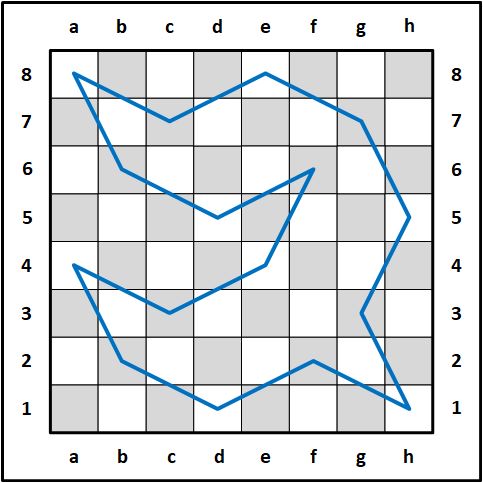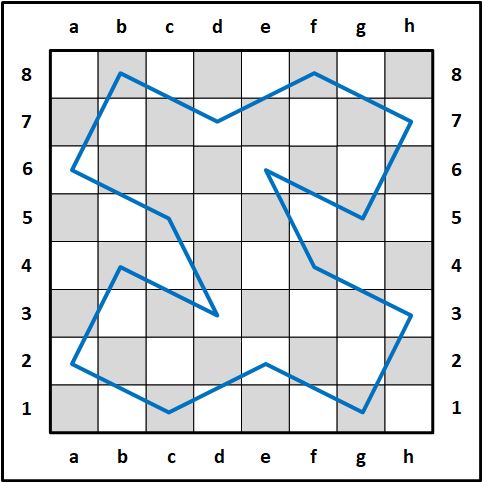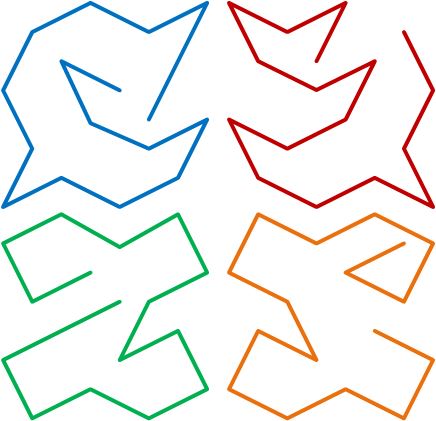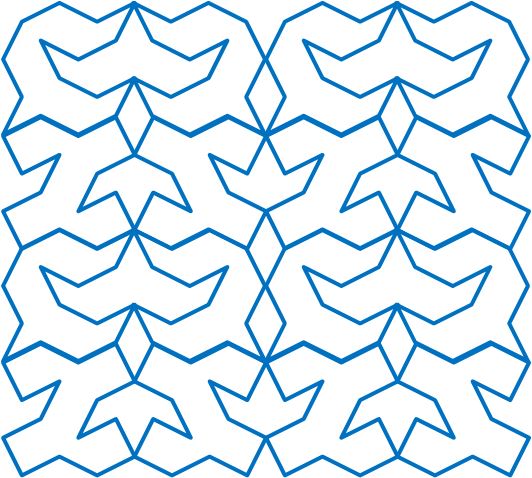Knight's Tour
Closed Construction I
While making designs on the chessboard with four mini-knight's tour closed circuits, I realized I could construct a complete closed knight's tour covering all 64 squares with one circuit. This knight's tour does not make a Latin Square nor is it semi-magic. Check out the following steps I used in making the knight's tour.
Step 1:
I first made one complete circuit consisting of 16 moves then copied the circuit and flipped it horizontally to make the second circuit.
Step 2:
I designed a third 16 move circuit, copied it, then flipped it horizontally as in Step 1.
Step 3:
I combined all four mini-knight's tours on one board that ended up making a very nice geometric and symmetrical pattern.
Step 4:
After combining all four mini-knight's tours, I wanted to keep most of the symmetrical pattern but make a single 64 move knight's tour. I was able to do this by moving only three lines (knight moves) and deleting one line. In the following image, I changed the colors of seven knight moves. I added red, orange, yellow, green, lavender, aqua blue, and black.
Step 5:
In this step, I moved the red line over the top of the orange line, yellow over to green, lavender to aqua blue, deleted the black line then recolored all the lines in the tour back to blue. The following single closed circuit is the result of moving only three lines and deleting one line.
Step 6:
After successfully making a single closed knight's tour circuit out of four mini-knight's tour circuits, I colored each original mini-knight's tour circuit patterns blue, red, green, and orange.
Step 7:
I wanted to check to see if the individual mini-knight's tour patterns could make a tessellation piece when combined together but was unsuccessful. I will show the process here anyway. Using the same techniques I provide will be possible to find other knight's tours that can make tessellation pieces resulting in nice tessellations that can be used on book covers, website backgrounds, tiles, or other types of art.
Step 8:
I connected the four mini-tours together to make an interesting tile-like pattern. The first image shows the four mini-tours while the last image shows the tile.












